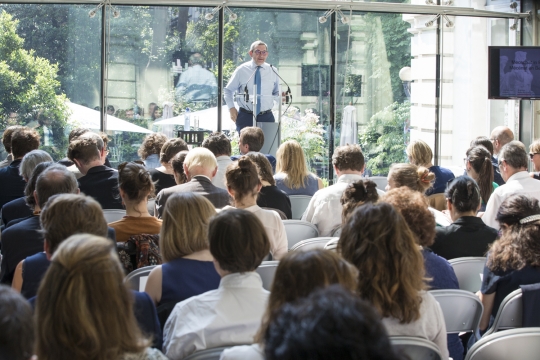Cultural and heritage donating in Belgium
The conclusion to the first part of our symposium at the BELvue Museum on 6 June was clear: in addition to ensuring a favourable tax environment, government has a role to play in encouraging and communicating about promoting support for culture.
A reduction in subsidies for the cultural sector implies that it must itself get involved in the search for alternative sources of finance. The first part of this three-part symposium, held on 6 June 2016 under the auspices of the King Baudouin Foundation and FARO, looked at culture policies and the role of government. Whilst, as indicated in the last Barometer, philanthropy has the wind in its sails, it nevertheless seems that as few as 1% of Belgians consider “culture and heritage protection” as an area to which support should be given in priority.
Cultural institutions, as well as government bodies, have a big job on their hands to convince potential donors to invest in culture. Our neighbours’ experience shows that government has an essential role to play in establishing a favourable climate for “cultural patronage”. Thanks to fiscal incentives and targeted awareness building, governments can send a positive signal. Sven Gatz, Flemish Minister for Culture, also underlined the importance of the government’s role by giving an overview of measures and potential tools aimed at finding alternative sources of finance.
The second part of this symposium, which will be held in Antwerp on Tuesday 11 October as part of Groot Onderhoud, the annual meeting for the culture and heritage sector, will look at the role of organisations in the sector. Efficacious fundraising demands the entire institution being involved, the development and implementation of an effective strategy and impeccable professionalism. Moreover, care should also be taken to ensure that the donor plays the role that he/she deserves in the project.
Patrons make a donation when they are convinced about the importance of a cultural project, when they are proud of an institution or when they feel concerned. The third and final part of this symposium will take place in Brussels, in January 2017, within the framework of the Brussels Antiques and Fine Arts Fair (BRAFA) and will focus on donors themselves.
